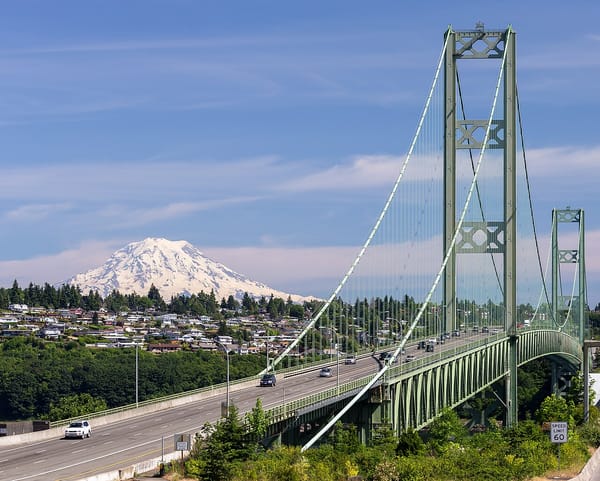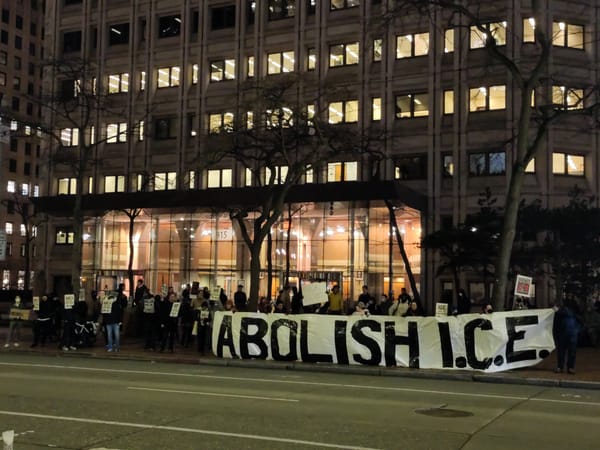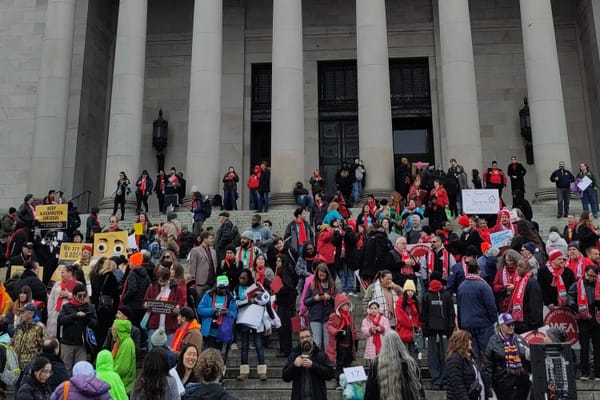What Wilson's win means for Cascadia
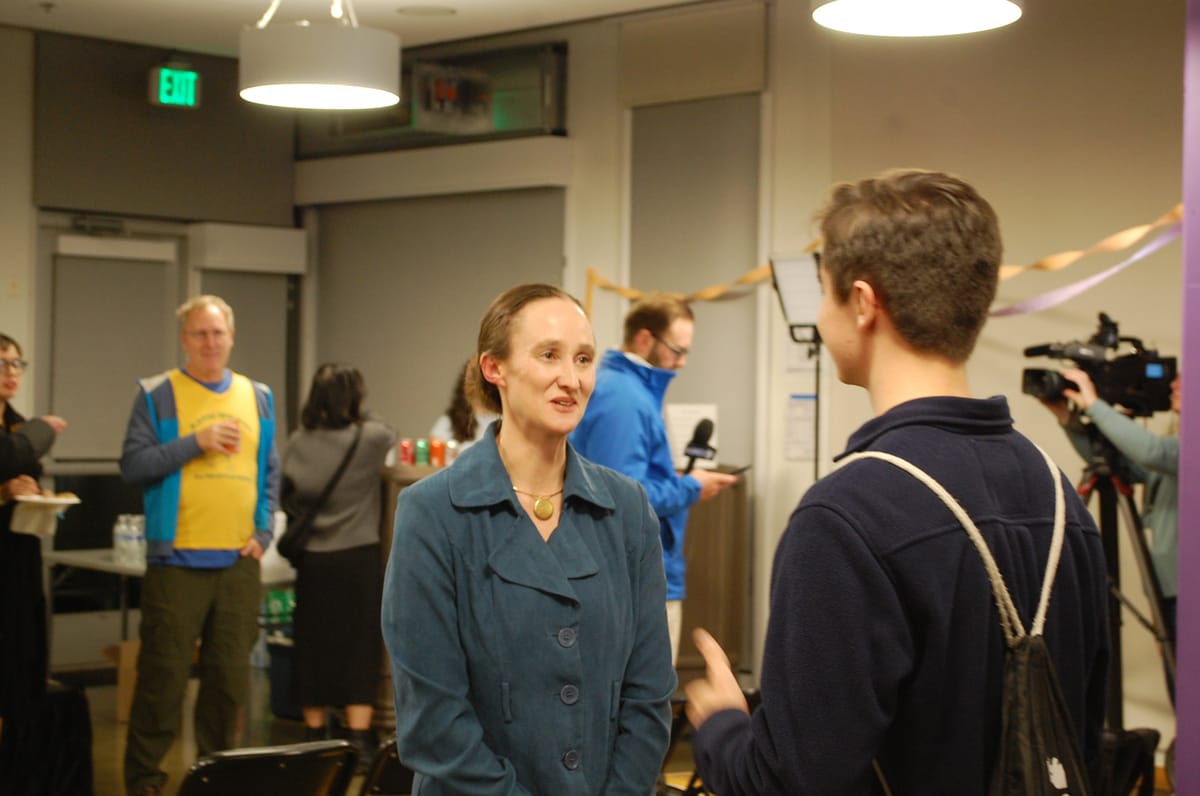
On Monday night this week, as we awaited results in the Seattle mayor's race, I went to the Paramount to see Patti Smith, my first time seeing her perform. The show was astonishing: the 79-year-old rock legend sang with an intensity that would be the envy of an artist decades younger. She channeled all of the songs on her deeply strange album Horses, which was released exactly fifty years ago to the day of her Seattle show. Smith also read a poem by Arthur Rimbaud and then gave the audience a sublime rendition of Pissing in a River, her most profound work.
If you want to read more about Smith's performance at the Paramount, Audrey Vann wrote a fantastic review of the show for The Stranger.
Smith ended her performance, inevitably, with People Have the Power, which she co-wrote with her late husband, Fred Sonic Smith. Telling the audience that her husband "hoped it would excite and incite people to march and to use their voice," the hall was filled with a palpable energy at the finale.
Two days later, we learned that progressive activist Katie Wilson had won her race to defeat mayor Bruce Harrell, a pro-corporate centrist who coasted through his term without addressing housing affordability, dragged his heels on transit and pedestrian safety, and offered the Seattle Police Department a sweet new contract with almost no new accountability measures.
People, for once, did have the power. Wilson, who has succeeded in passing minimum wage ballot measures through the organization she founded, the Transit Riders Union, lives in a 600-square-foot apartment on Capitol Hill, where she and her partner are raising a daughter and just scraping by in Seattle.
What does it mean that Wilson, Cascadia's humble and slightly awkward version of Zohran Mamdani, will now lead our region's largest city as a progressive socialist?
Though Seattle voters did send two new progressives to the city council, Dionne Foster and Eddie Lin, Wilson will still have to contend with a crusty majority resistant to taxing the wealthy or adequately funding social housing.
And very soon, Wilson will likely be faced with an invasion of troops and federal agents as the authoritarian Trump administration wages its war on progressive US cities. I believe Wilson will boldly stand up to Trump, but she'll have to contend with SPD, a police department represented by a union sympathetic to Trump's fascist crackdown.
As I've written before, I have no idea how Wilson feels about the idea of Cascadia separatism, but I'm convinced that her approach, if our movement grows in opposition to what's happening in the United States, will be much more open-minded and flexible than Bruce Harrell ever would have been.
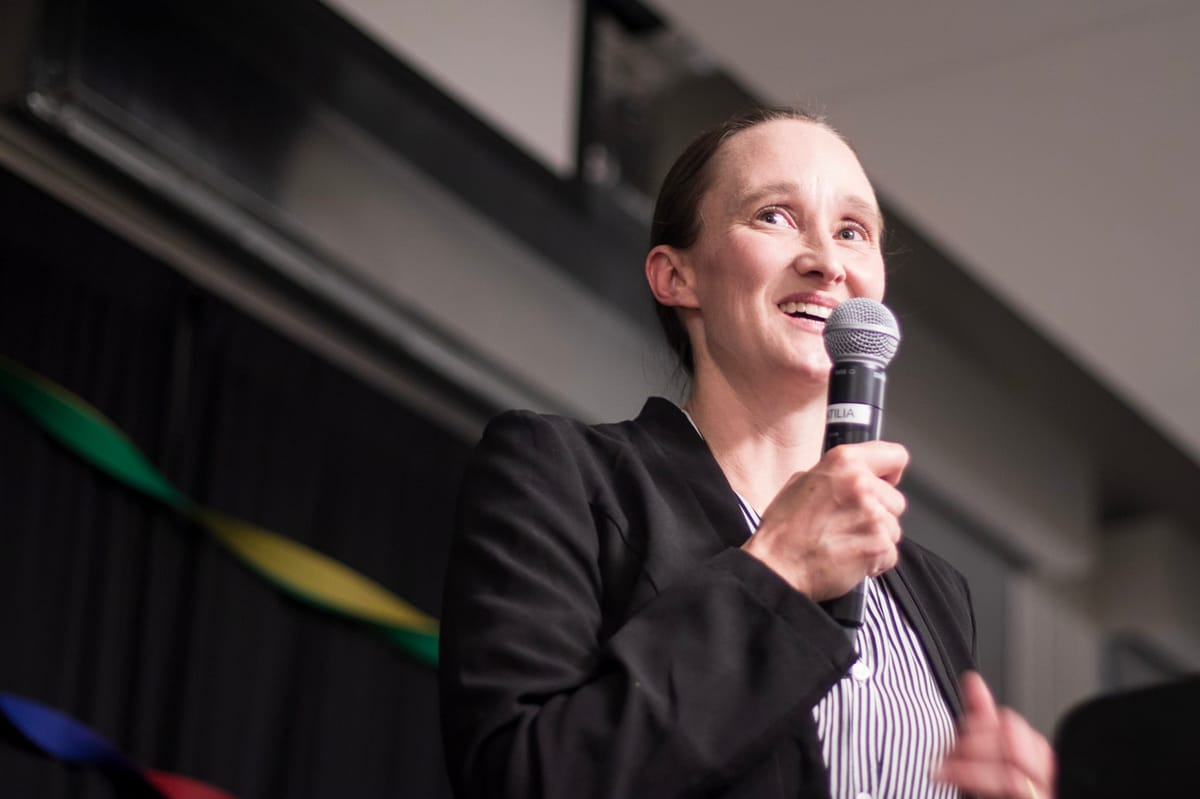
As we head into a new, uncertain era in which Trump will use every tactic he can get away with to consolidate power for his regime, Cascadia's cities are well-positioned to stand up to Trump and advocate for autonomy.
Portland, of course, is leading the way, with inflatable frog costumes and anti-ICE aerobics – but also with a city council and mayor that are committed to opposing federal overreach. There's a growing movement to revoke the land-use permits for Portland's ICE facility, and as the city confronts its ongoing homeless crisis, they may be open to leaving behind a federal government that is looking to eviscerate funding for permanent supportive housing.
Spokane, a progressive bastion surrounded by right-wing nutjobs, now has an even stronger 6-1 liberal majority on its city council. Seattle could learn a lot from Washington's second-largest city, which has passed a raft of zoning reforms to encourage multi-family housing and eliminate parking requirements.
Tacoma, similarly, elected a progressive, pro-transit mayor and is poised to work with pro-transit Pierce County executive Ryan Mello to create a more affordable, sustainable city.
Meanwhile, north of the 49th parallel, Vancouver is currently run by pro-corporate mayor Ken Sim, and a council with a solid majority from Sim's center-right ABC party. But progressive are starting to make noise against Sim's proposed city budget, which freezes property taxes, gives a huge funding boost to cops, and slashes programs for the arts, social services, and climate action. More than 600 people came speak and force an 11-hour filibuster in opposition to Sim's budget at a recent Vancouver city council meeting.
Sim is up for reelection in 2026, and the city's often-divided progressives would do well to join forces and find a candidate like Wilson or Mamdani to send Sim packing his bags and returning private life.
People in Cascadia can now tell Trump, his party, and the feckless Democrats who have failed to oppose him that Katie Wilson and Seattle are in the midst of a new movement, a politics that favors compassion, affordability, and making sure the wealthy finally pay their fair share.
As Patti Smith wrote,
People have the power
Power to dream, to rule
To wrestle the earth from fools
--Andrew Engelson
Correction: Smith is 78 years old, not 69. Good lord.



